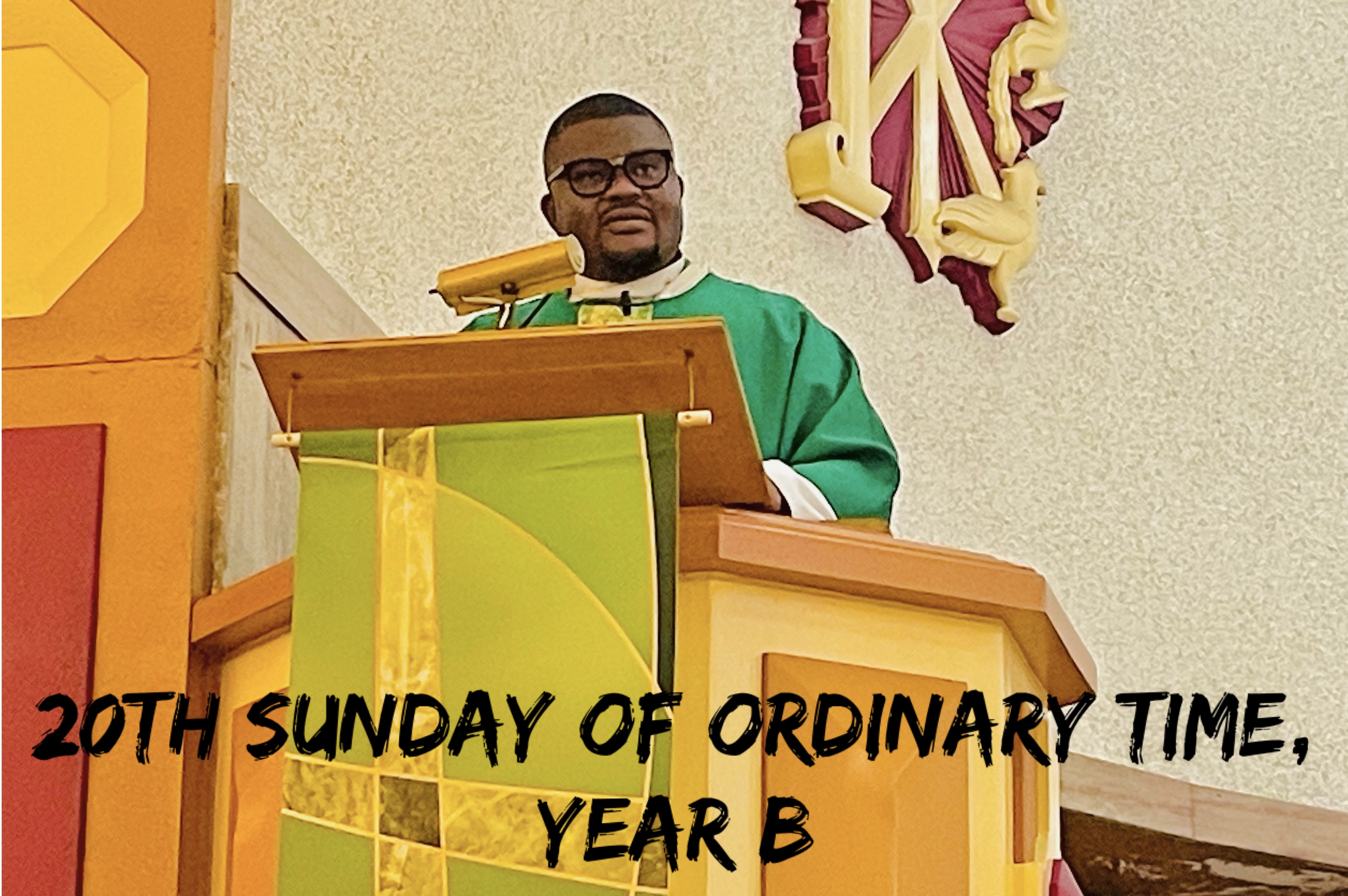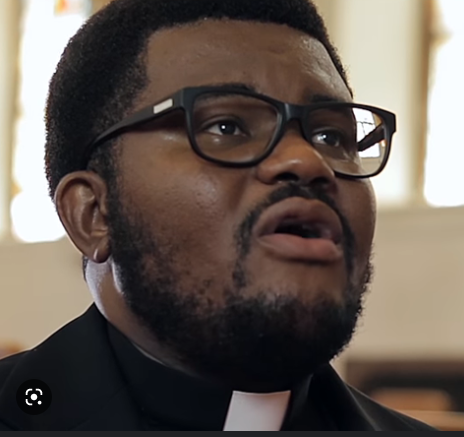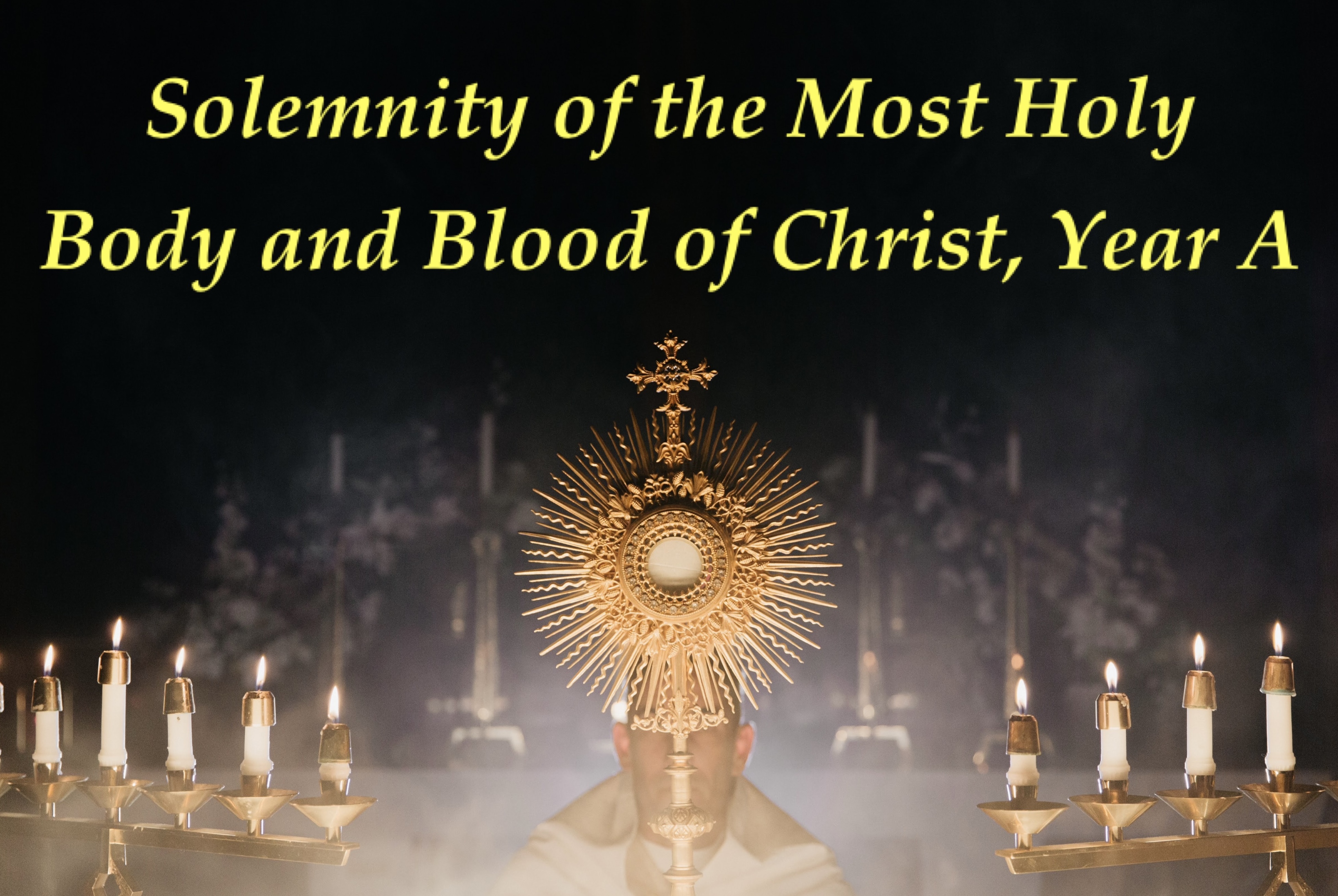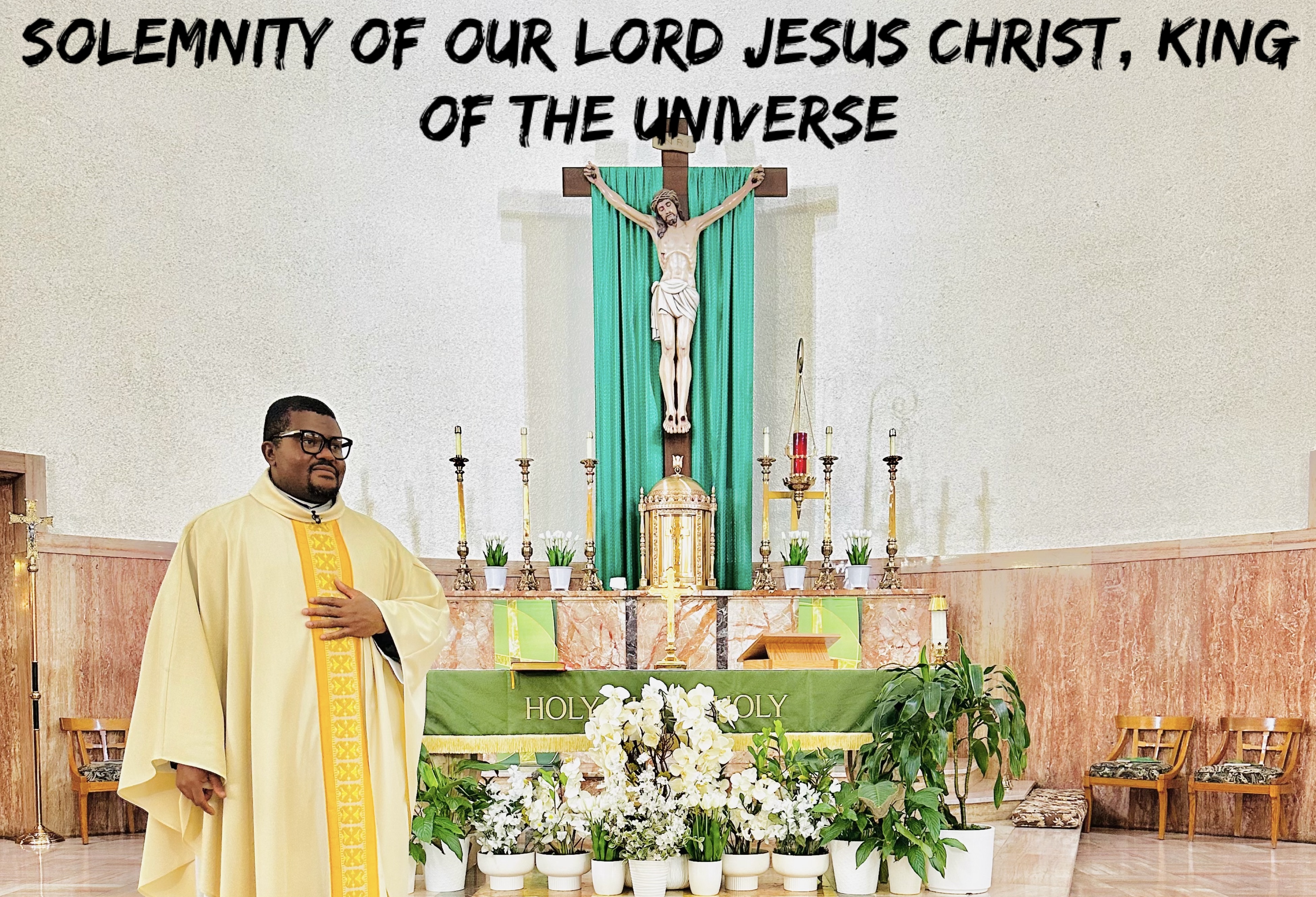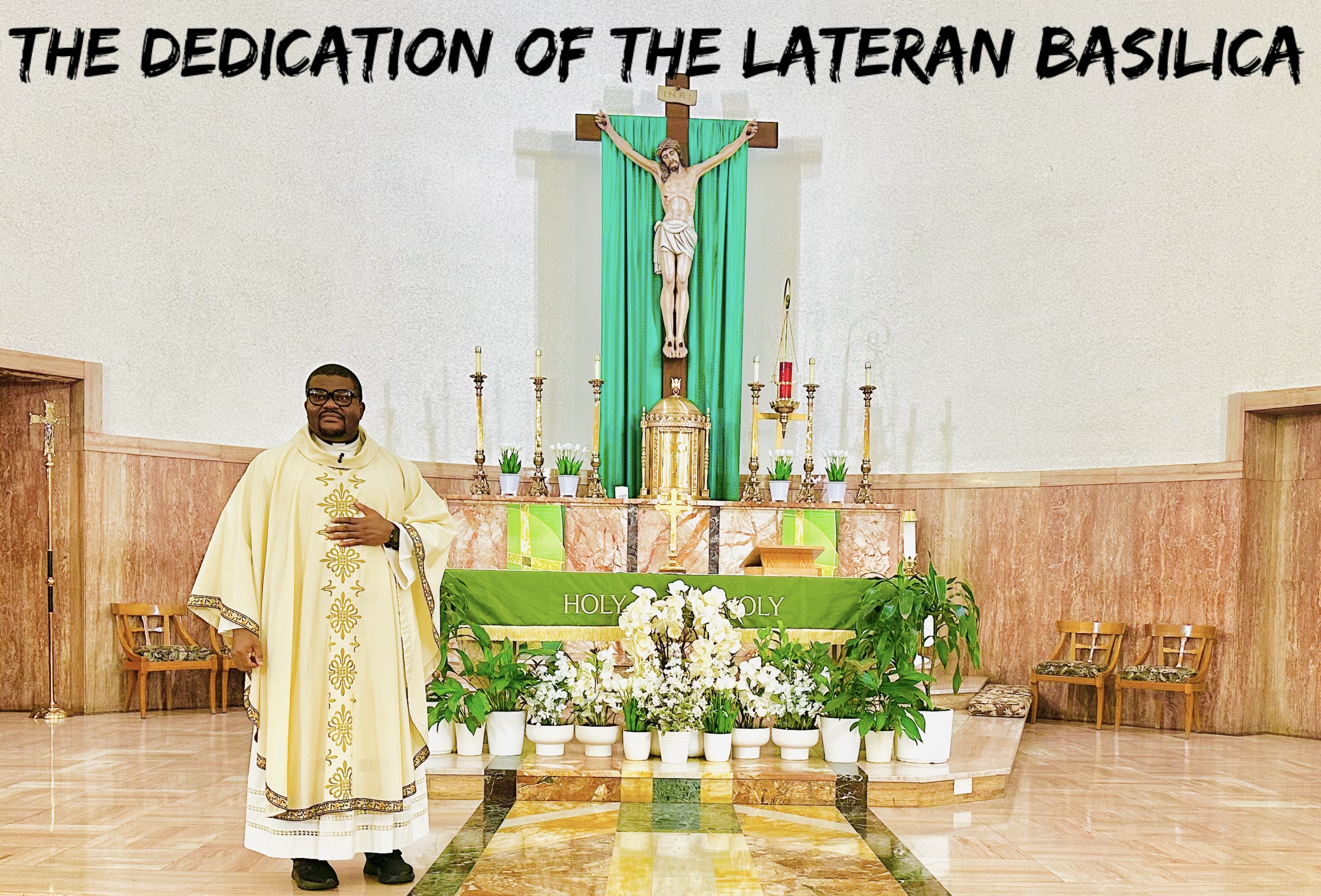20th Sunday of Ordinary Time, Year B
In today’s gospel reading, Jesus continues His Bread of Life discourse, promising the Eucharist to us as our gospel readings for the past two Sundays emphasized. Jesus today tells us, “I am the living bread that came down from heaven; whoever eats this bread will live forever; and the bread that I will give is my flesh for the life of the world.” With these words, Jesus clearly reminds us that He is the living bread. But the Jews objected to this statement saying, “How can this man give us his flesh to eat?” Because of their objection, Jesus immediately responds to them in a tone of a threat or punishment saying, “Amen, amen, I say to you, unless you eat the flesh of the Son of Man and drink his blood, you do not have life within you.” Jesus then goes on to end this discussion in a positive manner by promising them that “Whoever eats my flesh and drinks my blood has eternal life, and I will raise him on the last day.” From this dialogue my friends, we can see how important the Eucharist is in our lives and how important it is to receive the Holy Eucharist since it is morally necessary for our spiritual life, that is, the life of grace in our soul.
It is because of the importance of the Eucharist as explained by Jesus today, that the Catholic Church in its Catechism teaches us, that the Church obliges the faithful to take part in the Divine Liturgy on Sundays and feast days and, prepared by the sacrament of Reconciliation, to receive the Eucharist at least once a year, if possible during the Easter season. The Church also strongly encourages us to receive the holy Eucharist on Sundays and feast days, or more often still, even daily. Since Christ is sacramentally present under each of the species, communion under the species of bread alone makes it possible to receive all the fruit of Eucharistic grace. (#1389 - #1390). What are these fruits of Eucharistic grace? They are: a foretaste of heaven, a pledge of eternal life, a guarantee of reaching heaven, an increase in the communicant's union with the Lord, forgiveness of venial sins, preservation from grave sins, strengthening of the bonds of charity between the communicant and Christ, reinforcing the unity of the Church as the Mystical Body of Christ, identifing us with Christ’s Heart, sustaining our strength along the pilgrimage of this life, making us long for eternal life, and uniting us even now to the Church in heaven, the Blessed Virgin Mary, and all the saints.
The Second Vatican Council in Sacrosanctum Concilium #47 also states that the Eucharistic sacrifice of the Body and Blood of Christ, a memorial of His death and resurrection is a sacrament of love, a sign of unity, a bond of charity, a Paschal banquet in which Christ is eaten, the mind is filled with grace, and a pledge of future glory is given to us.
Today’s First Reading from the Book of Proverbs, chapter 9:1-6 while announcing the coming of the Messiah who will bring good things and blessings in a banquet that prefigures the Holy Eucharist where Jesus gives us Himself as food, also reminds us of Jesus’s invitation to us as it tells us to “Come, eat of God’s food, and drink of the wine He has mixed! So that we can forsake foolishness and live; then advance in our way of understanding.”
Some Fathers of the Church emphasized how important the Eucharist is like Saint Ignatius of Antioch, who said that the Eucharist is the medicine of immortality, the antidote for death and the means to live always in Jesus Christ. Saint Ignatius also emphasized that the Eucharist acts as the seed of future glorification for the body, making it incorruptible for eternity. Hence, the Eucharist sows within the human person, the germ of immortality, since the life of grace is more perdurable than death.
So my dear brothers and sisters, as Jesus reminds us today that whoever eats His flesh and drinks His blood remains in Him and He in them and has eternal life, and that He will raise them on the last day, let us be truly present, and sincerely participate actively in the Holy Eucharist with a sense of obligation, love, faith, confidence, devotion, and reverence. Let us also receive the Body and Blood of Christ in a state of grace, properly prepared by the Sacrament of Reconciliation, and visit Him regularly in the Blessed Sacrament where He remains ever ready to receive us and listen to our requests.

